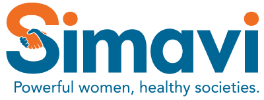Internship data analysis WASH SDG programme
- Netherlands
Internship data analysis WASH SDG programme
Assignment
Additional analysis of baseline, midline and endline data of the 3 Simavi sub-programmes of the WASH SDG programme
Period: Jan – Mar 2025 (negotiable)
Introduction
The WASH SDG programme was a seven-year (July 2017 to March 2024) multi-country programme funded by the Ministry of Foreign Affairs’ Directorate General International Cooperation (DGIS) / Inclusive Green Growth (IGG) department. It responded to the Dutch commitment to contribute to the Sustainable Development Goals, particularly SDG 6 of “ensuring availability and sustainable management of water and sanitation for all”.
The WASH SDG programme aimed to sustainably improve access to, and use of, safe drinking water for at least 450 000 people, sanitation for at least 2 million people and improve the hygiene behaviours of 1.6 million people.
The programme was implemented through a consortium, led by Simavi, formed by the Dutch partners of the WASH Alliance International (WAl)1,SNV and Plan Netherlands and was implemented in seven countries (Bangladesh, Ethiopia, Indonesia, Nepal, Tanzania, Uganda and Zambia). Simavi implemented the programme in 3 sub-countries in Bangladesh, Nepal and Uganda.
The progress against the programmes three theory of change strategic objectives was measured with 13 outcome indicators. Data was collected at baseline (2018), midline (2021) and endline (2023) for the above mentioned indicators. The sub-programmes analysed their data in the sub-programme (baseline/ midline/ endline) report. At programme level a global mid term review (MTR) and end term review (ETR) was done.
Furthermore the Consortium was requested by DGIS/IGG to monitor additional “systems” sustainability indicators that would be used to conduct sustainability check assessments. The below framework was developed based on the FIETS sustainability principles and includes 11 indicators. Data for the sustainability checks was collected at midline (2021) and endline (2023). For each of the sub-programmes the sustainability check reports at midline and endline can be made available.
Scope of Works
This assignment will only relate to the 3 Simavi sub-programmes (Bangladesh, Nepal and Uganda) of the WASH SDG programme. Based on the scanning of the available data, the background reading and the interviews (inception phase of the assignment) you will propose a list of possible analysis options, including publication options, timeframe and needed resources. It is expected that there could be outputs related to (among others):
Gender and social inclusion/ Leaving no-one behind
WASH systems strengthening
Sustainability
Leverage
WASH in schools / health facilities
Simavi’s harvested outcomes (compiled report)
Envisioned process:
Introduction meeting.
Background reading and getting acquainted with the available data.
Interviews relevant staff members.
Inception report: Propose future analysis options.
Discussion and agreement on the way forward
Development of deliverables.
Competencies and Experience:
Experience with data collection, data analysis and research
Affinity with the vision and mission of Simavi
Background in WASH will be an added value
Fluency in English
Level of Effort
It is expected that the assignment will take in total at least 3 months.
What can Simavi offer
- Supervision and support from a WASH expert and a MEAL advisor.
- An allowance of €400/- allowance per month for a full time (36 hours per week)
- Commuting allowance (0,21cts per km or cost of public transportation 2nd class if the intern does not have a demonstrable right to a student travel product)
